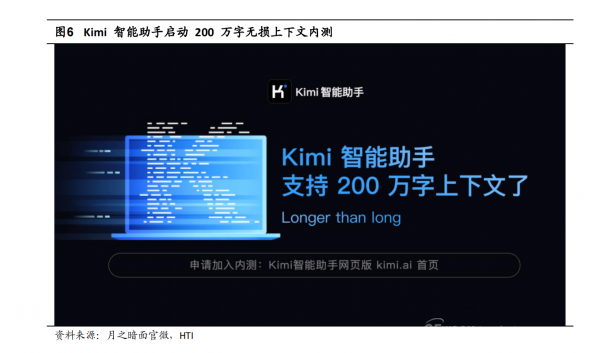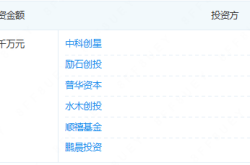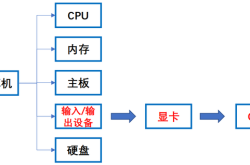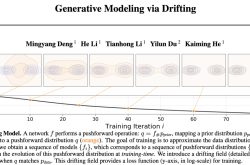Yang Zhilin has no way back
![]() 11/13 2024
11/13 2024
![]() 612
612

Kimi and "Dark Side of the Moon" need to become braver in the face of challenges.
By Xu Wenwen
Edited by Zhang Xiao
Recently, news that Yang Zhilin, the founder of AI company "Dark Side of the Moon," and co-founder and CTO Zhang Yutao have been brought to arbitration by a former investor has sparked widespread discussion.
According to a report by "Wave of Undercurrents," Yang Zhilin and Zhang Yutao have recently been brought to arbitration in Hong Kong by investors from their previous company, Recycle Intelligence. The relevant electronic arbitration application has also been submitted to the HKIAC (Hong Kong International Arbitration Centre). Currently, more details about this dispute have not been disclosed.
To recap briefly, here's the general situation of this dispute:
In 2016, Yang Zhilin, Zhang Yutao, and Chen Qicong founded "Recycle Intelligence" and received investments from GSR Ventures, Huashan Capital, Jingya Capital, ZhenFund, Sequoia China, Wancapital, and Boyu Capital, with the company's valuation once exceeding USD 200 million.
Last year, amidst the upsurge in large models sparked by OpenAI, Yang Zhilin saw an opportunity and decisively established a new company, "Dark Side of the Moon," alongside Zhang Yutao.
The problem arose here. According to insiders speaking to "Wave of Undercurrents," the likely reason for Yang and Zhang being brought to arbitration is that they initiated funding and founded "Dark Side of the Moon" last year before obtaining exemption letters from several investors in Recycle Intelligence.
The reason these investors delayed signing the exemption letters is likely due to their dissatisfaction with Recycle Intelligence's subsequent shareholding in "Dark Side of the Moon."
However, this is not the root of the problem.
The more core starting point of this dispute may lie in the rapid increase in the valuation of "Dark Side of the Moon" and the rapid growth of Kimi, the intelligent assistant, which has caused dissatisfaction among some investors who invested in Recycle Intelligence but did not follow up with investments in "Dark Side of the Moon."
01
Kimi goes viral, valuation rises, and former investors feel jealous
According to media reports, the investment institutions that initiated arbitration against Yang Zhilin and Zhang Yutao include GSR Ventures, Jingya Capital, Boyu Capital, Huashan Capital, and Wancapital.
They were all previous investors in Recycle Intelligence but were initially not optimistic about the new company, "Dark Side of the Moon," when it was founded.
To be precise, it's not that they were not optimistic about "Dark Side of the Moon"; rather, amidst the upsurge in large models, the entire industry has diverged in its judgments regarding the opportunities presented by large models and the survival paths of startups.
An insider in the investment industry revealed to China Business News that during the early stages of "Dark Side of the Moon's" establishment, among the old shareholders of Recycle Intelligence, Sequoia China and ZhenFund chose to continue their investments, but institutions such as GSR Ventures and Boyu Capital did not follow up due to their lack of optimism towards general large models.
For example, Zhu Xiaohu, a partner at GSR Ventures, has openly stated that they "will not invest in China's base large model startups" because the business model is difficult to implement. In their view, the true potential of large models lies in their application.
"The monetization of large models is even worse than that of power plants. After the infrastructure investment for power plants, there is basically no need for further investment, whereas large model companies need to spend more money every two or three years to upgrade, and the monetization cycle may only be two or three years. This business model is very poor," Zhu Xiaohu previously stated.
In an interview with ECNS, Zhu Xiaohu also expressed "pessimism" about the outcomes of six independent large model startups: Zhipu AI, Baichuan Intelligence, ZeroOne, "Dark Side of the Moon," Minimax, and Jieye Xingchen, believing that the best outcome for the "six tigers" would be to be sold to major companies.
The most ironic aspect lies here—it was initially they who were not optimistic, who were skeptical, and later, it was also they who were dissatisfied with the shareholding ratio.
The likely reason is just one: the rapid increase in the valuation of "Dark Side of the Moon" and the rapid breakthrough of its Kimi intelligent assistant have exceeded or even overturned their initial judgments.
In fact, although "Dark Side of the Moon" did not receive favor from some investors from the Recycle Intelligence era, it still found more like-minded investment partners.
According to Haitong International Securities, less than two months after "Dark Side of the Moon" was established in March last year, it received investments from Sequoia China, Capital Today, ZhenFund, and Lisi Capital, among others.
Shortly thereafter, in October, "Dark Side of the Moon" released its first intelligent assistant product, Kimi Chat (later renamed Kimi intelligent assistant), which supports input of up to 200,000 Chinese characters. According to the official statement of "Dark Side of the Moon," 200,000 Chinese characters was the longest context input length supported by large model services that could be productized for use in the global market at that time, marking that "Dark Side of the Moon" had achieved a world-leading level in the important technology of "long text."
Shortly afterward, Kimi intelligent assistant quickly went viral. From December last year to February this year, the monthly active users of Kimi intelligent assistant were 508,300, 1,128,500, and 2,984,600, respectively, with year-on-year growth rates of 122% to 164%.

In March this year, Kimi intelligent assistant launched a closed beta test for lossless context input of up to 2 million Chinese characters. Image/Haitong International Securities
Throughout this process, "Dark Side of the Moon" continued to receive new funding, and its valuation also continued to rise.
In February this year, "Dark Side of the Moon" completed over USD 1 billion in funding, the largest single-round funding among domestic AI large model companies at that time, with a corresponding valuation exceeding USD 2.5 billion. Then, in August this year, "Dark Side of the Moon" received another round of investment from Tencent, Gaorong Capital, and others, raising its valuation to USD 3.3 billion.
At this point, some investors who did not initially invest began to stir up trouble, attempting to secure more benefits for themselves through arbitration.
02
When 'idealism' collides with 'realism,' Yang Zhilin is forced to 'grow'
Unlike Zhu Xiaohu and others who adhere to the "realist" approach to large models, Yang Zhilin, born in 1993, has a completely different mindset.
In terms of how to develop large models and plan the development direction and path of "Dark Side of the Moon," Yang Zhilin is a typical idealist.
In a previous exclusive interview with Tencent Technology, Yang Zhilin stated:
"AI is not about finding a PMF (Product/Market Fit) in the next year or two but about how to change the world in the next ten to twenty years... We are firm long-term believers."
"It's not that finding a PMF is invalid. Assuming you find a scenario today where the current technological capabilities offer huge incremental value from 0 to 1 but limited growth potential from 1 to N, this scenario is okay... This only focuses on application opportunities, but the greatest opportunities do not lie here. If your goal is commercialization, you cannot think about it separately from AGI. If I only do applications now, then I might be overshadowed in a year. He further added.

In comparison, such industry differences are understandable, and this is not a simple game between "short-sightedness" and "long-termism" because everyone's judgments about the market differ.
And based on one's own judgments, regardless of the subsequent direction or outcome, accepting the costs or results brought about by one's initial choices should have long been a basic consensus in the modern capital market.
Moreover, according to China Business News, when Yang Zhilin left Recycle Intelligence to start his own business, he received support from CEO Chen Qicong and major shareholders, with Recycle Intelligence receiving equity in "Dark Side of the Moon" in return. At that time, Chen Qicong sent an email to the company's shareholders explaining the situation and notifying them of the plan, which was confirmed by the shareholders and approved by the board of directors.
From this perspective, the farce faced by Yang Zhilin and "Dark Side of the Moon" has, to some extent, defied common sense.
Of course, regarding this farce between the two parties, the information disclosed is currently limited, and the ultimate direction remains unknown.
However, one thing is certain: for the two young entrepreneurs, Yang Zhilin and Zhang Yutao, this is a hurdle they must overcome, and they have no way back.
On the other hand, objectively speaking, although "Dark Side of the Moon" is currently progressing at a good pace and demonstrating impressive potential, it is still far from being successful. In a market environment dominated by giants, it remains a challenger, and the challenges it faces in the future will only increase.
To put it mildly, it's not a bad thing for young entrepreneurs to encounter setbacks early on. The road to entrepreneurship, which is fraught with difficulties, is already littered with too many failures. They certainly need to grow through trials and tribulations. Being too smooth is not a good thing.
However, regardless of the situation, this should not be the kind of challenge they face.
Their true testing ground should be in challenging giants, technological iterations, exploring future commercialization models, company management and governance over a longer period, globalization in the longer term, and self-transformation as they may grow into a new round of giants, rather than the current game with profit-seeking capital.








